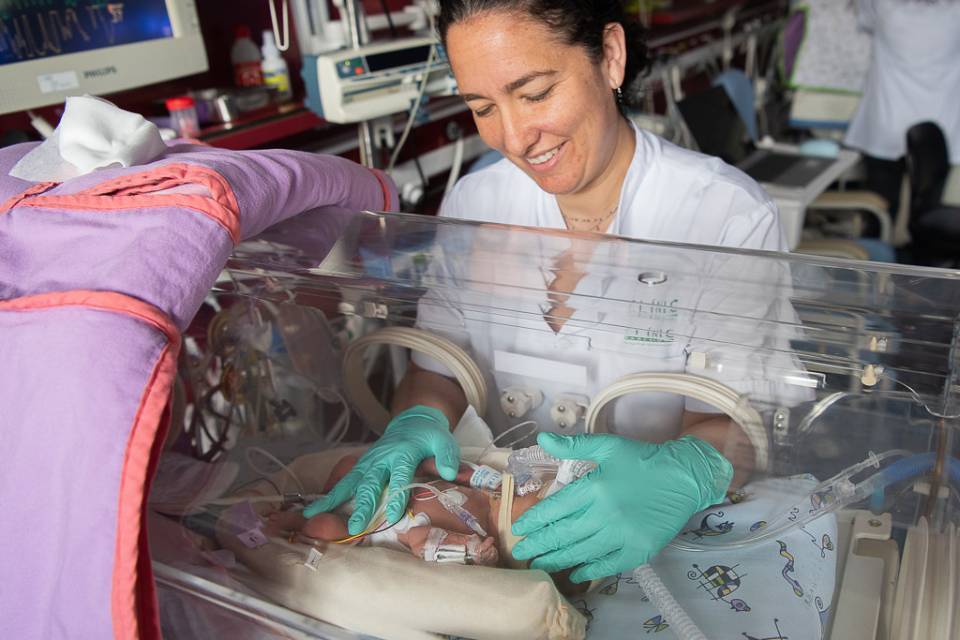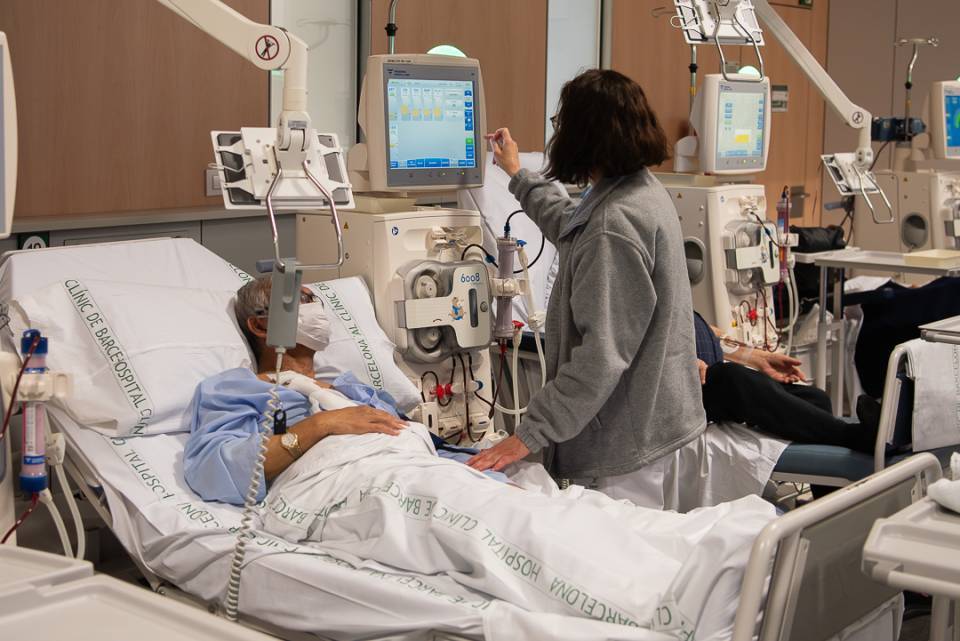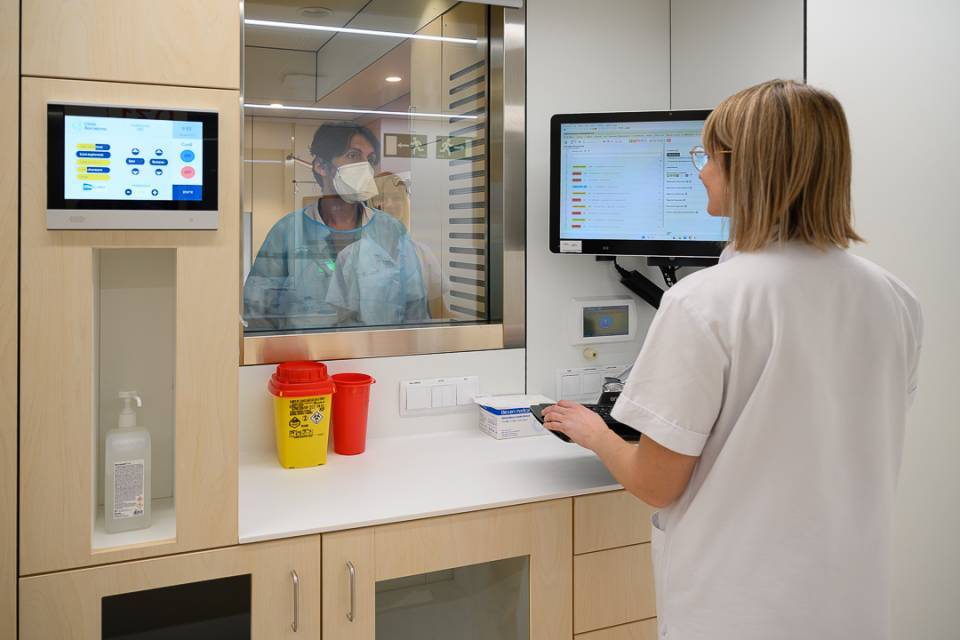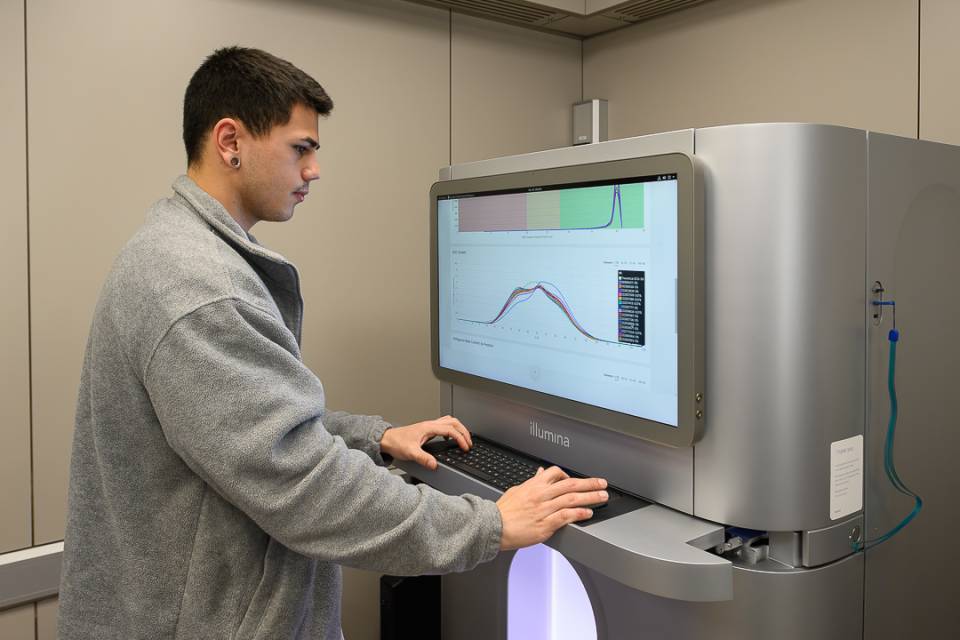17 November is World Prematurity Day, a day to commemorate, and inform and raise awareness about this yet little-known health condition. Therefore, within the context of this day, we would like to highlight the innovative project applied to prematurity that the Hospital Clínic-Maternitat Neonatology Service has participated in.
The Service promotes strategies that have clearly demonstrated their positive effect on the development of premature babies and that allow for the empowerment of families and early home discharge. These include the extended use of milk donated by the human milk bank, the environmental adaptation protocol in the unit, the involvement of the nursing staff in monitoring preterm babies, the promotion of the kangaroo method by families and volunteers, the implementation of a coordination programme in the assessment of and intervention for premature babies with neurological risk factors, and the incorporation of resources such as neonatal speech therapy, music and dance.
A clinical line of innovative research has also been created in which nurses and neonatologists participate, as do families, engineers and other professionals, incorporating innovative solutions to address problems that arise in the daily clinical practice. In this regard, work is being carried out on 3D printing to create non-invasive ventilation interfaces that are minimally aggressive to the skin of the preterm baby's face, using biocompatible materials. A wireless transcutaneous monitoring device based on 5G technology is being developed, as is a suite of software tools based on virtual reality for training and education in invasive ventilation.
“Prematurity affects a high proportion of the population, most of whom will survive into adulthood, and both prevention and development-based care strategies can guarantee the best possible prognosis”, explains Dr. Òscar García, head of the Neonatology Service.
Prematurity: a health risk for babies and also for future adults
The World Health Organization (WHO) estimates that each year 15 million babies are born preterm, in other words before 37 completed weeks of gestation. The media coverage of prematurity and the investment of resources in its prevention, treatment and monitoring are underrepresented, especially when compared with other less prevalent health problems. And it should be borne in mind that preterm babies will become adults and their future health is conditioned by their prematurity.
In our area, the number of premature births remains stable and they represent 6-7% of all births. Although most have no sequelae and the prognosis has improved dramatically in recent years, the group of very premature babies (born before 32 weeks of gestation) and extremely premature babies (born before 28 weeks of gestation) can have high morbidity (respiratory and neurodevelopmental mainly) and mortality rates, and cause disability in the future.
Prematurity mainly requires the development of prevention strategies, which are not easy to implement, and innovative and extremely specific treatment resources.
However, the main therapeutic and preventive interventions to avoid long-term deleterious effects are based on the participation of the parents and all the professionals (nurses, neonatologists, psychologists, physiotherapists, speech therapists, etc.) in development-based care. And it is especially important to incorporate support for the preterm baby and the family during their stay in hospital and also on the return home and the subsequent follow-up, in coordination with the primary care resources, neurodevelopmental monitoring and associations of families of premature babies.
The artificial placenta, a pioneering project in Europe, which can increase the survival of extremely premature babies
On World Prematurity Day, Dr Eduard Gratacós, director of the Hospital Clínic Gynaecology, Obstetrics and Neonatology Institute and of BCNatal, will participate in a colloquium organized by the Fundació La Caixa to discuss the causes of prematurity, its consequences and how to prevent, palliate and avoid them. It will be held at 7 pm on 17 November and will be available via streaming by registering in advance by clicking on the following link: https://bit.ly/3q6KbLO
Dr Gratacós will explain the progress made during the first year of the artificial placenta project, the first in Europe to create an artificial placenta that recreates the conditions in which the foetus lives in the mother's womb. If it is successful, it could increase the survival of babies born extremely prematurely and reduce the possible sequelae. So far, the project has allowed a foetus to survival for hours outside of the womb.




